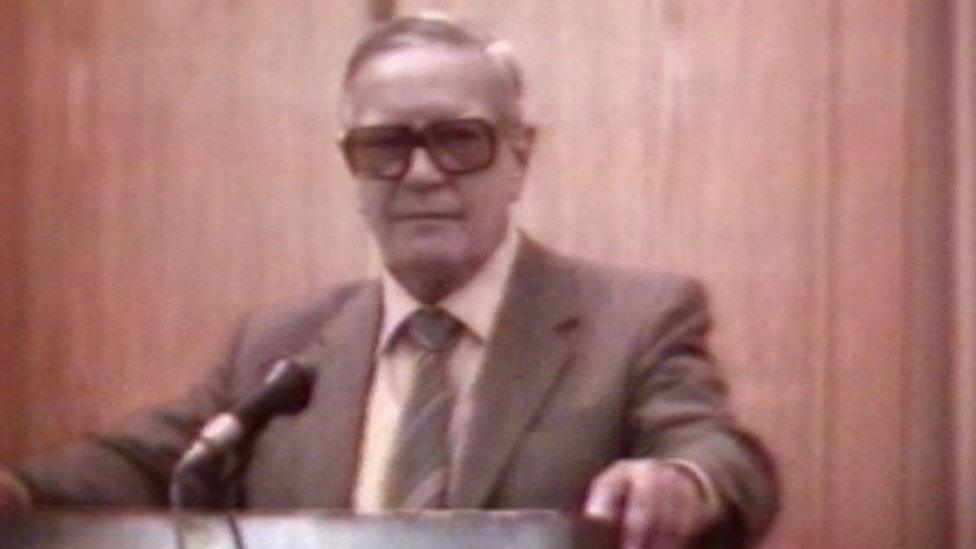MI5 ignored Cold War spy tip-off over 'jealous wife' fears
- Published
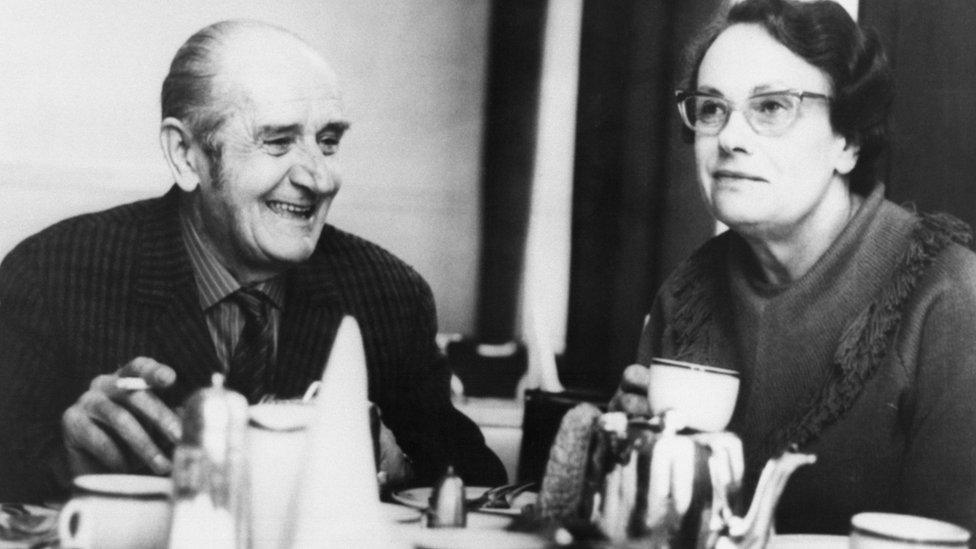
Convicted British spies Harry Houghton and Miss Ethel Gee were both found guilty of spying and each sentenced to 15 years in prison
British intelligence ignored a tip-off about one of the most significant spies of the Cold War because it came from his spurned wife, according to newly-released MI5 files.
Harry Houghton, a clerk in the top secret Underwater Weapons Establishment in Dorset, was arrested more than four years later, in January 1961, along with other members of the so-called Portland Spy Ring.
Houghton and his lover, Ethel Gee, had been stealing top secret material about the British submarine programme and passing it to a KGB officer known as Gordon Lonsdale.
Houghton and Gee were both found guilty of spying and each sentenced to 15 years in prison.
Files, released at the National Archives on Tuesday, include their MI5 files and letters to one another in prison.
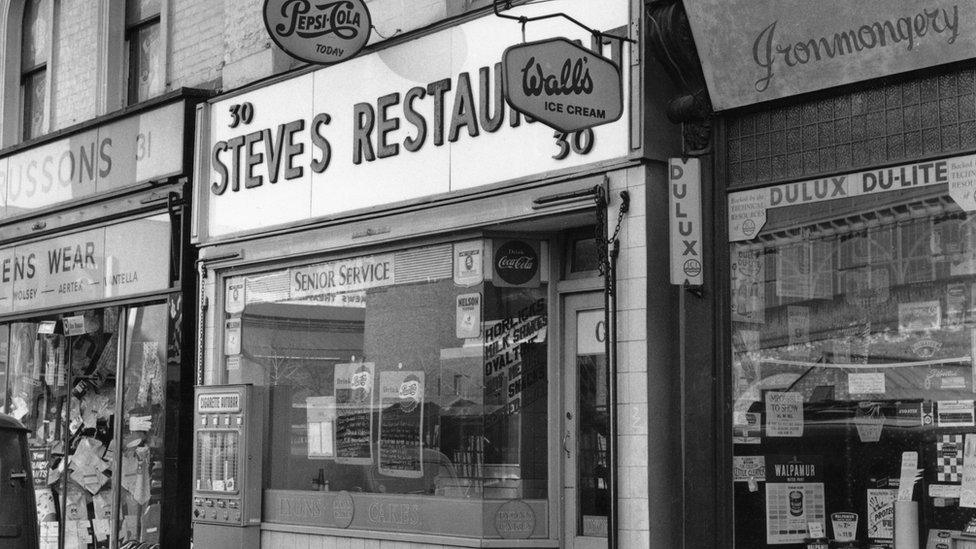
Houghton was said to have passed British military secrets to the Soviets at Steve's Restaurant - pictured here in 1961 - in Lower Marsh, in Waterloo, London
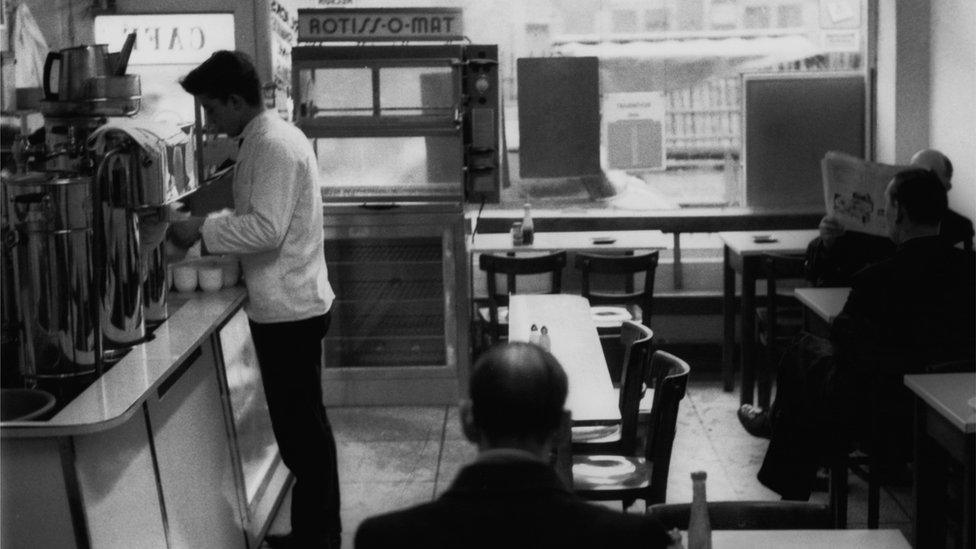
Inside the restaurant which featured in the Portland Spy Ring trial
Interviewed in 1961, Mrs Houghton said she had become suspicious eight years before when her husband began making regular visits to London.
Back from one trip, she said he had "pulled out a bundle of pound notes and threw them in the air". His wife helped collect them - she thought there was £150 in cash.
She had also noticed brown paper parcels on his desk at home. She opened one and found a bundle of papers marked "top secret".
'You know too much'
And when she asked Houghton about a "tiny camera" she had discovered hidden under the stairs, he became angry.
She also claimed he had tried to push her off the cliffs at Portland Bill, and on another occasion, after drinking heavily, said: "I've got to get rid of you - you know too much."
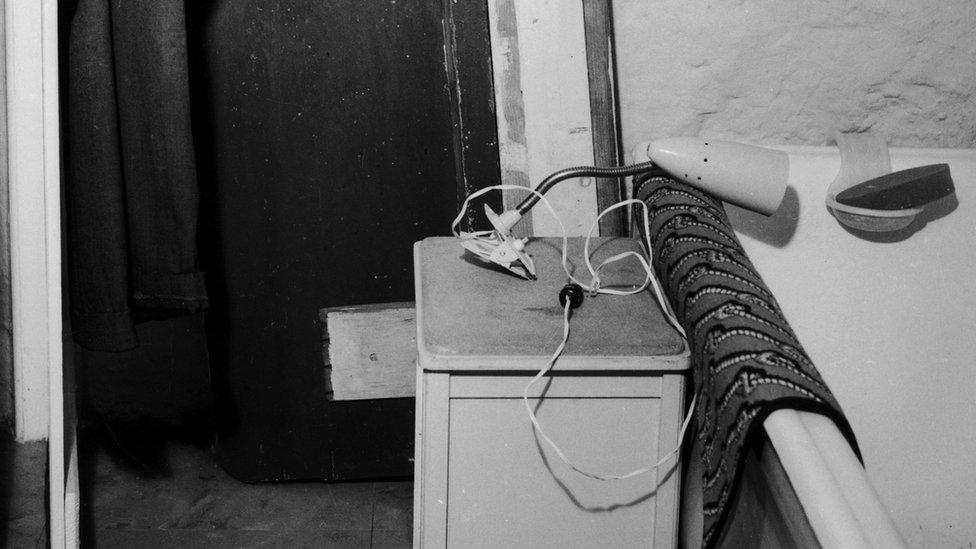
A darkroom found in Houghton's bathroom
Mrs Houghton tried to alert his bosses, telling a welfare officer in 1956 that "her husband was divulging secret information to people who ought not to get it".
The message got through to MI5 - but was coloured by the Admiralty's advice.
They knew Houghton had separated from his wife and taken up with his colleague Gee and wrote that it was likely the allegation was "made on the spur of the moment and out of pure spite".
One official wrote: "It is considered not impossible that the whole of these allegations may be nothing more than outpourings of a jealous and disgruntled wife."
Houghton was caught thanks to information from a CIA agent in Polish intelligence.
The clerk had been based at the British Embassy in Warsaw in 1952 - and that is when he started selling secrets, initially to the Polish secret service.
They passed him on to the KGB when he returned to England.
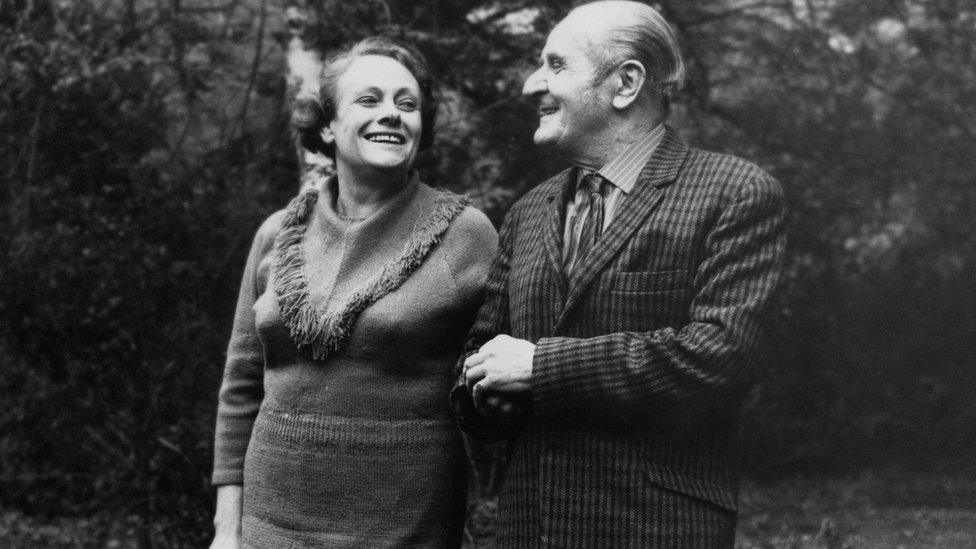
Houghton, then aged 65, and Gee, then 56, were pictured together after their release from prison in 1970
After Houghton's trial, E.M Furnival Jones, of MI5, wrote that if they had investigated the earlier tip-off, "there is a fair chance we would have discovered that he was being controlled as a spy …we should have stopped a leakage of information... four years earlier".
However, he said the "consolation" was that "we have hurt the R.I.S. [Russian Intelligence Service] more".
The operation had netted a valuable KGB "illegal" agent, Konan Molody.
He had been living in Britain as "Gordon Lonsdale", having adopted the identity of a Canadian who had died as a child.
Molody was quite co-operative when interrogated, but not so Houghton and Gee.
Houghton admitted to MI5 he had lied at his trial. It was clear that Gee had misled the court too.
But neither would tell MI5 anything.
Gee wrote to Houghton she would not "stoop" to co-operate with them, and, knowing officers read her letters, she described them as "the scum of the earth".
- Published28 September 2016
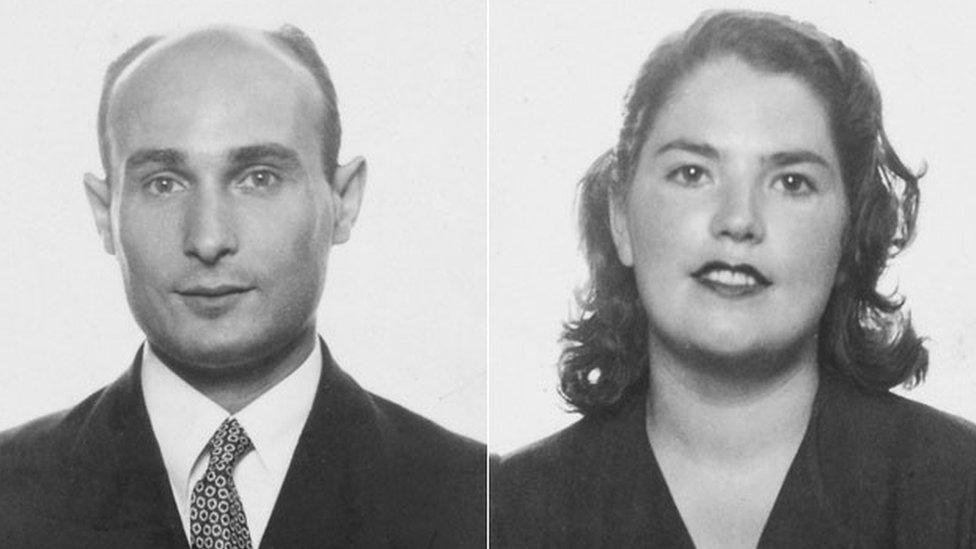
- Published4 April 2016
